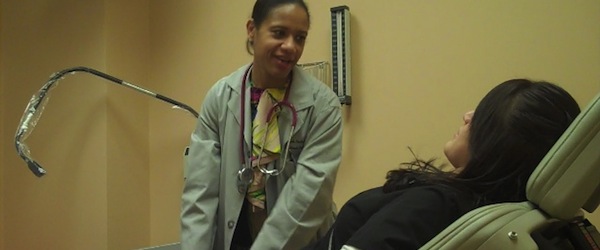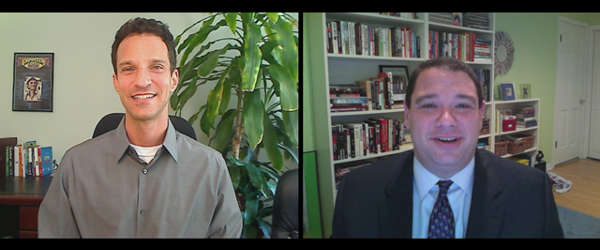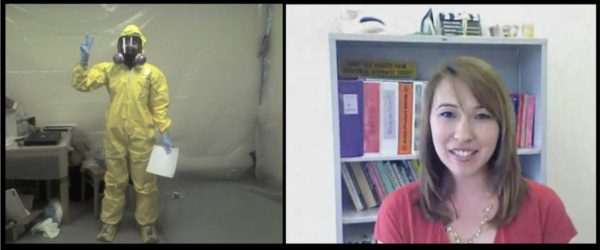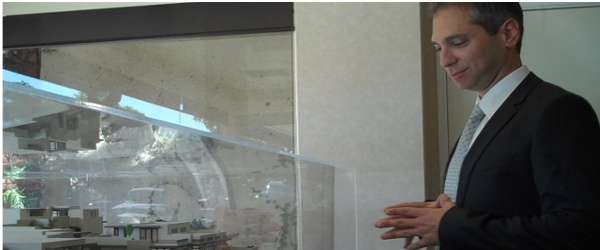Accounting Career Paths
To find out if accounting is the right career for you, we’re going to look at a variety of accounting career paths in today’s episode. Our guest is a really cool CPA who left his day job after creating a successful online business focused on helping you pass the CPA exam. He shares with us all kinds of accounting career information from what does it take to become an accountant to a day in the life of an accountant.
SHORT VERSION (Full Episode below)
|
Today’s Guest
 CPA & Founder of Another 71: Jeff Elliott
CPA & Founder of Another 71: Jeff Elliott
College Major: Accounting
College: Kansas State University in Manhattan, KS
High School: Lansing High School in Lansing, KS
First Job Ever: Washing dishes at Golden Corral restaurant
Worst Job Ever: Commercial roofing the summer before college
Accounting Career Information
Jeff explains that accounting career paths can range from bookkeeping jobs for private companies to certified public accounting jobs at the massive, Big 4 accounting firms.
As for what does it take to become an accountant, that really depends on the career path you choose. Although a college degree is generally preferred, it may be possible to get bookkeeping jobs for private companies without going to college. But if you’re looking for more income and prestige, you’ll want to pass the CPA exam, which will require a college degree plus some additional hours of schooling.
Once you’re a CPA, you’ll have options that include doing tax work and auditing work, as well as anything from working on your own to working for a Big 4 accounting firm or working for a company that needs on-staff accountants, known as working for “industry”.
Day in the Life of an Accountant
A day in the life of an accountant depends on the time of year and the accounting career paths in question. Jeff tells us that the hours can fluctuate significantly as can the levels of travel and stress.
Regardless of your path, he says the daily skills to be an accountant will include being able to meet deadlines and to sit, be organized, pay attention to detail, and perform under pressure. Check out the full interview with Jeff below to learn more!
FULL EPISODE
For our Audio Podcast: Careers Out There on iTunes
TRANSCRIPT OF TODAY’S INTERVIEW
Most Rewarding Part of Careers In Accounting 10:55-13:50
Skills to be an accountant 13:50-16:48
Education: What does it take to become an accountant 16:48-19:06
Taking the CPA Exam 19:06-25:05
Most challenging aspect of different careers in accounting 25:05-27:45
Breaking in to different careers in accounting 27:45-29:30
CPA Career Paths 29:30-30:21
Keys to success for different careers in accounting 30:21
Careers Out There Host Marc Luber: Hey everyone – on today’s episode of Careers Out There, we’re gonna explore careers in accounting. We’ll be talking to Jeff Elliott of Topeka, Kansas. He’s a CPA with over 8 years of experience in the accounting profession. Jeff’s worked in private accounting, public accounting and in-house at two publicly-traded companies. Today he runs Another71.com, which is an online business that helps you pass the CPA exam. Another 71 is one of the most visited accounting-related sites on the internet. Jeff actually gets 1.2 million page views a month at that site! On every episode of Careers Out There, we explore a career path by talking to a real professional who does that kind of work. They tell us what it’s really like and share all kinds of advice to help you decide if it’s the kind of path you want to pursue. You see, we’re helping you find a career that fits you so you can love what you do! I’m your host Marc Luber and I’m really psyched Jeff’s here today because who better to tell us about accounting careers than someone who can help you pass the CPA exam?! It’s gonna be a great show so stick around! [theme song] OK we’re back. Jeff welcome to Careers Out There.
CPA Jeff Elliott: Thanks again.
Host Marc Luber: Alright, thanks for being here. So, Topeka, Kansas! I’ve gotta say I’ve never been to Topeka, Kansas and it looks like you’re dead center in the heart of America!
Jeff Elliott: Yeah, you’re not missing out on much.
[DIFFERENT CAREERS IN ACCOUNTING starts at 1:38]
Luber: Ha! Nice! So you and I were talking on the phone the other day about all different kinds of accounting careers and I want to get to that. But first I want to separate the difference, so everyone could understand the difference between being a CPA and just being a regular accountant. Can you separate that for us?
Jeff Elliott: Basically an accountant is someone who says “you know, I really like working with numbers” and so they go in and work for a small business, they do their bookkeeping, which means they keep track of how much money is coming in, how much money is going out, what types of things the company owns, how many computers, how many trucks, how many tools, how much money does the company owe to credit card companies and whatever. So basically, an accountant kind of keeps score for a company.
Luber: OK. And then CPA. CPA stands for Certified Public Accountant, but what does it mean if someone’s a CPA?
Jeff Elliott: A CPA is someone who is an accountant who then takes the extra steps to get the additional educational requirements and then takes the CPA exam and then they go on to get licensed by their state. The CPA exam is a national exam but each CPA is actually licensed by their state. So a CPA in California has different licensing requirements than a CPA in Kansas.
Luber: Got it. And let’s talk about some of the different paths CPAs can take. When we were talking on the phone the other day, I learned a lot because I didn’t know any of this! You were saying that there’s the tax side of things, there’s an auditing side and there’s an industry side – going in-house to a company. We all have to pay taxes so we all kind of relate to taxes, so let’s start with the tax side. Tell us what that means. What’s that about?
Jeff Elliott: Well from January through April basically, everyone’s getting their taxes done. And so what happens is you get your W2 in the mail, maybe some interest income statements, you walk them down the street to your CPA and say “hey, here’s my taxes” and they crank out some numbers and say “here you go, mail this to the IRS – you’re getting this much back or you need to write a check for this much.” That’s pretty much what a CPA does as far as the tax side. They can do tax work for individuals, just your average family, they can do tax work for corporations, even corporations have to pay taxes too. And they also do simple things like sales tax compliance work.
Luber: And what’s a typical day for those people? You were telling me that 8 months of the year it’s pretty much a 9-5 kind of a thing?
Jeff Elliott: Yeah, there are CPAs who do both auditing and tax work. So it seems like they’re always in a busy year but people who primarily do tax work, their busy time of the year is early-to-mid January through mid-April and then later on in October with another filing. But that’s when the work is really insane. You’re working 60-70-80, even some work more hours per week.
Luber: Wow.
Jeff Elliott: Many CPA firms require 6 days a week at that time. Some 7. It just kind of depends on what the culture is there within the firm.
Luber: OK. So that really busy time of year, you cut out at one point, is January to April and then October?
Jeff Elliott: Yeah. January through April then all of those people who filed extensions and procrastinated to file their returns, they have to file again in October.
Luber: OK. And then CPAs who focus on the audit side – what is “audit side”? What’s that about?
Jeff Elliott: Well basically people who have money that they want to invest, they can either invest it or save it, like put it into a CD at a bank or if they want to take a little bit more risk and earn a greater return, they look for companies out there like say, Apple. They really like the iPhone, they really like the iPad and they think Apple is doing great things. So they think Apple would be a great place to put their $100. So Apple puts out these financial statements and says “this is how much we earned, this is all the assets that our company has, this is how much we have” and so the investor looks at the financial statements and says “you know, I really like what’s going on with Apple but you know what, I don’t work for Apple so how do I know that any of this is true.” Well a CPA and ONLY a CPA, usually a CPA firm, they go in and go inside Apple and look around and investigate everything and they say “yes, basically what Apple says on these financial statements is what is really going on with the company.” So then the investor can say “you know what – I think Apple would be a great place to park my $100”.
Luber: OK. That makes sense. I get it. And what about the lifestyle for that? How’s that different? Is that a regular 9-5 kind of job or what’s the scoop?
Jeff Elliott: Well auditors, like tax professionals, have a busy season also. There’s some days where they’ll just spend time at their cubicle at the CPA firm but a lot of times they will spend an extended amount of time within the company – like they will physically go to Apple. They probably have this little, small cubicle in this dark room somewhere where they sit with other auditors, maybe a team of 5-10 auditors, and they all sit on their laptops and that’s where they work. So wherever they live, they drive to Apple every day or whatever company it might be.
Luber: OK. So they’re overseeing. They’re watching over everything to make sure that everything the company’s reporting to the public is accurate so the public knows that their investment is based on reliable data.
Jeff Elliott: Correct.
Luber: OK, yeah! Very good. So then, tell me this though – why is it called “public accounting”?
Jeff Elliott: Probably because you’re protecting the public. You are serving the public by doing tax work, you’re serving the public by doing audit and compliance work, you’re kind of the watchdog for the public for the financial sector.
Luber: Huh! And then what’s an example in the – in the intro I said you’ve done public and private accounting. What would private accounting be?
Jeff Elliott: Public is usually where you’re performing a service for the public either doing tax work or auditing work. Private accounting is when you go in and work for a company that is not publicly traded, which means that they don’t sell their corporate stock on any stock exchange. Just some guy started a business and he’s doing well and so he needs an accountant to come in and keep things straight because he doesn’t like doing bookkeeping. He wants to go focus on whatever his deal is. So private accounting you work for a privately held company.
Luber: OK. Got it. Yeah, just wanted to get that distinction because that was tricky to me. OK then we talked about the other thing. In-House, Industry, going in-house to a company to work in the “Industry” side. So that’s the lingo for working at a company as a CPA?
Jeff Elliott: Yeah, usually at a publicly traded company like again, going back to Apple. Whereas before maybe you were an auditor working at Apple but then you think “you know what, I really like this place. I think I’d like to be an accountant HERE.” And so then they go to work FOR Apple. And that’s usually what it means when someone mentions “industry”.
Luber: Now as an attorney recruiter, I was very often moving people from law firms. Sometimes from one law firm to another but a lot of times from a law firm to a company to go as an “in-house” attorney, which would be similar to this.
Jeff Elliott: Yup.
Luber: And everybody – almost every attorney – wants to go in-house to a company. They all think that it’s this beautiful, relaxing, it’s like sitting on the beach – it’s gonna be a whole different kind of career path. Is it that case in accounting? Is there a big difference? Is it a more laid-back environment? What’s the deal there?
Jeff Elliott: Well going to work for industry, while it might have different types of stress than a public accounting environment does – you know you’re not driving some place every day that’s not your normal work office – like you’re driving to Apple every day and next week you’ll be driving to whatever company. With industry, basically you go to the same place every day but in industry you still have deadlines. The same quarterly deadlines and the same year-end deadlines that those auditors are there to report on, you the accountant have to be there to provide them information. And so it’s a little bit different but some of the stress is still the same. So the grass isn’t always greener on the other side.
Luber: Right! You’ve still gotta log the hours.
Jeff Elliott: Yeah, exactly.
[MOST REWARDING PART OF CAREERS IN ACCOUNTING starts at 10:55]
Luber: So what’s the most rewarding part of being a CPA?
Jeff Elliott: Well when I worked in public accounting, and I didn’t work for a Big 4 firm, I worked for a small local firm and I had about 15-20 clients, and so some of my clients were liquor stores, clothing stores, I had a modeling agency, I had a mom and pop mechanic shop and basically they do what they do well, and that’s whatever it is. But they don’t know tax law, they don’t want to bother with the books and they have no idea if they’re making a profit or not! They don’t know. And so they bring their stuff to you and then you can sit them down and say “yeah, what if you maybe you didn’t spend so much on this” or “you know what – this service that you’re providing is very profitable, more profitable than some of the other stuff that you’re doing, what if you did more of THAT?” or “What if you sold more of THAT?” And so you are tangibly helping people, which impacts their families and that’s the most rewarding thing I think about accounting, is the fact that you’re helping people. You’re helping people do their tax returns, you’re helping investors make good investment decisions…When accountants don’t do their job, you see what happen with Enron!
Luber: Ha! Good point.
Jeff Elliott: By the way, that accounting firm no longer exists!
Luber: Yup! It took down 1 of the biggest!
Jeff Elliott: Yeah.
Luber: Yeah. Amazing. OK, so that’s great. So the joy of helping other people by having a skill that you’re bringing to the table that’s just one of the elements or factors that’s missing from what THEY bring to the table with their expertise.
Jeff Elliott: Exactly.
Luber: So you’ve gotta really enjoy the rewarding aspects of it.
Jeff Elliott: At least for me, it was always job security. Because accountants, and especially CPAs, they’re always in demand. So I kind of had that peace of mind in knowing that in a recession, of course a lot of CPAs are finding out that even in a big recession it’s still hard to find work, but I always found that I had better job security than my peers. And in any job interview, you instantly have a leg up against your non-CPA peers who are vying for the same job.
Luber: OK, that’s good. Good to know. And it’s getting more and more competitive now?
Jeff Elliott: Yeah. It’s extremely competitive. It used to be that the benchmark was having a Bachelor’s degree to get your foot in the door. Now, with the economy the way it is, now the benchmark is that you need to have a CPA certification.
Luber: OK. So you people have got to be ready to take that test!
Jeff Elliott: Yup.
[SKILLS TO BE AN ACCOUNTANT starts at 13:50]
Luber: So let’s talk about the type of people that should. Who should be going for a career like this? Let’s talk about – you know, break it down. Skill sets, interests and personality types. Who would fit this path best?
Jeff Elliott: Well being a CPA, just like really any desk job, you have to be the type of person who won’t go insane sitting at a desk for 8, 10, 12, even more sometimes hours a day. There are some people who physically cannot stare at a spreadsheet all day. If that’s not you, you shouldn’t be an accountant or CPA. Basically if you want to be a CPA you have to be able to meet deadlines but also be able to handle stress. And be able to sit, be organized, attention to detail, meet deadlines and be able to deal with some stress and perform under pressure. Those are some of the basic skill sets a CPA should have.
Lube: OK. And what about this? On the About page of Careers Out There, I talk about how my neighbor is a CFO at a hospital. He says to me during my years as a recruiter, he’d say “I can’t believe you have this job where you have to talk to people all day. I’d go crazy if I had to do that.” He’s like “I can just be an introvert like myself, I could sit in a room by myself, look at my spreadsheets, I don’t have to deal with anybody, this is the perfect job for me.” I said to him, “if I couldn’t talk to people all day and I had to stare at spreadsheets, I’d light my hair on fire and jump out the window.” So is that the deal? Do you have to be an introvert? Or is it just for THAT type of role where you’re at a company as a CFO? Explain the differences there.
Jeff Elliott: Well being an accountant, a CPA, that’s a service profession. You’re not selling widgets or books. You’re selling a service. So part of selling a service is selling yourself. And so if you work in tax, your customers are bringing their stuff in to you, their tax work in to you, and you can’t just show up and just be all weird! You have to chit-chat, “hey how’s Jonny doing!” You know? “What’s going on with the business?” You have to be able to talk to people. If you work in auditing, you have to be able to number one get along with your fellow auditors, but you have to be able to walk up to the accounts payable clerk and ask for something. You have to be able to knock on the CFO’s door and ask for something too. You have to be comfortable talking to people for the most part. Now granted, in industry, like your friend, your friend works in industry, there are positions that lend themselves to people who would rather just do their job from 8-5, be left alone and go home.
Luber: OK. So the good thing then is there’s different paths within accounting that fit different types of people. And so many people that are considering the path could really find a place for themselves.
Jeff Elliott: Yup.
[EDUCATION: WHAT DOES IT TAKE TO BECOME AN ACCOUNTANT starts at 16:48]
Luber: Alright so let’s talk about school now. Tell us this. If someone doesn’t want to be a CPA, if they’re looking to be an accountant, is college necessary?
Jeff Elliott: No. If you want to be just an accountant, college is not necessary. Granted, you’ll be more marketable if you have your degree in accounting or whatever, but if you graduate from high school or maybe you go to community college and take a bookkeeping class, then you can take your resume and go to whatever small business, some mom and pop shop, whatever, and say “hey, I would like to do your bookkeeping” or you could start your own bookkeeping service. Most clients will not ask you “hey where did you get your degree.” They want to know “can you keep my books straight – yes or no.” So if you just want to be a bookkeeper or an accountant, you don’t have to have a degree.
Luber: OK. And then if you want to be a CPA, what should you study in college?
Jeff Elliott: If you want to be a CPA, the most efficient approach is to get a Bachelor’s degree in accounting and then most states require – all states require you to have 150 hours of college credit in order to get your license and to get certified. Some states require 120 hours, which is about a Bachelor’s degree just to SIT for the exam. But many will still require 150. So when someone graduates from college with an accounting degree, usually it makes sense to go an extra year and get a Master’s in accounting to get – not only do you get the extra hours but then you also get something like a Master’s degree.
Luber: So that means then that you’re getting work experience first? Or you just stay in school and then take the test?
Jeff Elliott: Well I personally graduated with a Bachelor’s degree and went to work for a public accounting firm and got my work experience requirements and then I went to night school to get my extra hours.
Luber: OK.
Jeff Elliott: It seems like a lot of people these days stay on the extra year, get their 150 hours and then sit for the exam right after they graduate from their Master’s program.
[TAKING THE CPA EXAM starts at 19:06]
Luber: OK. So let’s talk about that exam, because it’s a big, ugly hurdle that everyone’s gotta jump over. So tell us all about that test. What do people have to know in order to pass that test?
Jeff Elliott: Basically the CPA exam is regarded as one of the most difficult professional exams out there. In total it’s 14 hours long and it’s broken up into 4 parts which test over financial accounting, regulation – which is like tax, auditing, and then something called business environment and concepts, which is just basic business stuff. And it sounds simple enough – you just study and take it and pass, but it only has a 25-30% first time pass rate and people can study for one section like financial and then walk in and take it. You don’t have to take all 4 parts like you used to all at once. So you could study for financial, go in and take it and the current pass rates are about 50% who walk in and take a particular section of the exam will fail it. So it’s very, very difficult. It’s very expensive. And people also usually need to buy an expensive review course in order to pass it too. It’s probably similar to the Bar review, I’m guessing.
Luber: Yeah! It sounds like it. With the Bar, you could take it only twice a year. How often can you take this test?
Jeff Elliott: With the CPA exam, you can take it 2 months out of every quarter, so 8 months out of the year.
Luber: OK.
Jeff Elliott: The exam has gotten harder than it used to be because it covers more information but the accommodations for taking the exam: number 1 it’s computerized and number 2 you can take one section at a time if you want to. It’s more friendly on exam day.
Luber: OK. I want to give a website here. The National Association of State Boards of Accountancy, which is NASBA.org. We’ll put that on the screen and that will show you what you need in your state, what your state requires for you to even sit for the test. Or the other option is you could Google your state’s name and then after that put “Board of Accountancy” and that will pull up your state’s site. The national site has the map and it will pull up your state so you could pull up all that info for your state to see what you’ve gotta do. So let’s talk about studying for this thing. People have the option of the expensive courses. Do you know what those run? What’s someone looking to spend for something like that?
Jeff Elliott: To study for the exam, someone in theory could spend as little as $120 – that’s like $30-$40 per book, up to some courses which cost $2,500-$3,000. Since it has such a high fail rate, people spend a lot of money on a course. If they find out that they don’t really like that course then they go spend even more money.
Luber: Ha! Brutal! So now you’re devoting your career to helping people pass the CPA exam at Another71.com, so tell us about that and what’s going on over there.
Jeff Elliott: Basically Another71 was a website that I started in 2008 when I was just a candidate, when I was studying for the exam. And it became kind of like my online diary of my exam adventure. I developed a following and at the time there were no other CPA exam blogs. I was really the first one out there doing this and I never intended to make a business out of it. It was just a hobby. And then I developed somewhat of a following and then over time I got some sponsors and then I was able to quit my day job and be able to focus on helping people pass the exam through I do phone coaching, I have study guides for sale, and I kind of just give general advice.
Luber: I love it. I love stories like that! In the intro I explained that you’re getting 1.2 million page views a month!?
Jeff Elliott: Yeah, some months I get 1.2 million page views, yup.
Luber: That’s killer! That’s just amazing.
Jeff Elliott: Yeah. I’m now on my 3rd server. There’s different times throughout the year that kill my server. I was in the cloud and now I had to upgrade to a VPN, a virtual private network, to handle the load.
Luber: Ha! That’s great! That’s the kind of problem you want to have!
Jeff Elliott: Yeah! It’s a good problem!
Luber: So after the ugliness of getting through the CPA exam, someone passes, their done, actually – before we even get to that I want to make sure – you had told me that if someone goes to work at one of the big accounting firms – the Big 4 they’re known as?
Jeff Elliott: Right.
Luber: That it’s required that they pass within a certain amount of time otherwise they’re given the boot? Is that the deal?
Jeff Elliott: Well I think the culture within the Big 4 is that if they want to make Manager, they may have to have their CPA credential because there’s certain things that a non-CPA cannot do. So if you want to be a Manager on site at Apple and leading an audit team or whatever, you have to have your CPA designation and I think the culture within Big 4 provides maybe 2 years of leeway before it’s like “Why can’t you pass the exam?” And then people leave.
[MOST CHALLENGING ASPECT OF DIFFERENT CAREERS IN ACCOUNTING starts at 25:05]
Luber: Wow. OK. So it’s really important you guys – you’ve gotta take this seriously! So I want to get back to that question – so after the ugliness of getting through it, you pass it, you’re ready to move on, you’ve got your career started as a CPA. What is the most challenging aspect of that career path?
Jeff Elliott: The most challenging aspect of being a CPA is being able to handle the work-life balance. Maybe it’s a little easier than before because before you had work, family, exam and now it’s just work, family. And but still the hours can be insane, the stress can be crazy…Even in industry, the job that I left before, we had some pretty intense times. My boss threw a candy dish against the wall out of anger and, you know, I heard the F word so many times, you just don’t even flinch after a while. So, people handle stress differently. Some people just cannot have it, they quit, they go do something else, or maybe they move on to like a private industry, private company gig and something a little bit more low key.
Luber: OK. Let’s tweak that and talk about what weeds people out. What is the thing that if you can’t handle this, it’s like so challenging, a higher hurdle, if you can’t handle this, you shouldn’t even go down this path at all.
Jeff Elliott: If you can’t handle the long hours. Sometimes accountants, CPAs have to work from 7 in the morning to 10 or 11:00 at night and then a lot of them travel because they don’t live wherever their client is. So they’re staying in a hotel room. So they show up on site at 7 in the morning, hit their hotel room at 11:00 at night and then have to be at it again at 7 in the morning. And then repeat. A lot of people cannot handle that, especially if they have families.
Luber: That would be pretty grueling. And then it’s also a lot of sitting, right? Like you were saying earlier. Sitting and staring at spreadsheets.
Jeff Elliott: Right. If you can’t handle the monotony of running through numbers and looking at data and I mean, at the end of the day it’s still work. No one ever said work was fun, but if you know that that would drive you absolutely insane and you cannot handle that, then there’s probably better career choices out there for you.
[BREAKING IN TO DIFFERENT CAREERS IN ACCOUNTING starts at 27:45]
Luber: Right. So you’ve gotta really enjoy the rewarding aspects that you were talking about – helping people. That thing that you’re really helping people. So let’s talk now about getting a job. So someone – the rewards outweigh the challenges for them, they’ve got the skill set, they’ve got the education, they’re ready to go. What should they be doing as far as looking for a job? Should they just be going to the Big 4? Should they be doing what you did and looking at smaller? What’s the lay of the land there?
Jeff Elliott: If I were talking to someone today who wanted to work in accounting and did a really good job through school and Big 4 firms wanted to hire them, I would highly recommend that they go work for a Big 4 firm because that’s like your golden ticket. Getting a couple of years of work experience working for a Big 4 far exceeds pretty much any MBA that you could ever get, maybe outside of the Ivy League. I mean if you work for Big 4 accounting and then you go work in industry, I mean, you will, a lot of people come in as a Manager in industry and so if you can go Big 4, I would highly recommend that because that will do wonders for your career. It will jump start it. I did not go Big 4 and I went a different path. I worked for a small company and then worked for a private company and then worked for 2 publicly traded companies. That’s another path. But my number 1 piece of advice is that if you want to be an accountant: out of college go do accounting. Go do public accounting. Don’t go work for a bank. Because you’ll be stuck in a bank. Companies want to hire people with practical accounting experience who have been through tax season, know how to do book work, you know, they want experience.
[CPA CAREER PATHS starts at 29:30]
Luber: Interesting. That’s good advice. OK. Good. Where can people take their career? You said that you get to be a Manager. What would be the entry level title and then where can people see themselves going long term? What is usually the goal and the path here?
Jeff Elliott: Working in industry, it’s pretty cluttered there at the top. But people seem to want to work – to go and be a Manager, work their way into maybe a Director, be Director over a division, maybe be Controller and then maybe be CFO. But obviously not everyone can be CFO and so some people will be stuck in middle management, some people will be stuck as a Director, other people just leave and go do other stuff. Start their own business or whatever.
Luber: Right. So those are skills that will be really helpful in business.
Jeff Elliott: Exactly.
[KEYS TO SUCCESS FOR DIFFERENT CAREERS IN ACCOUNTING starts at 30:21]
Luber: Yeah. OK, so everyone’s got their different goals. Let’s talk about the keys to success to help them achieve those goals. You’ve got those years of experience out there and now you’re kind of overseeing all these people taking the exam. What can you tell people so that maybe they can get a head start? Maybe just some great keys to success for career advice that could help them get a head start for once they’re out there practicing?
Jeff Elliott: Man, I think my number one key to success that I would recommend is that – and it’s pretty simple – is that when you go to work, WORK! Don’t be on Facebook, don’t be emailing. Go in there and kick butt, take names, go to your boss and say “hey, what can I take off your plate” because your boss is busy and your boss needs people to take their workload. If you go in and do your job, figure it out a more efficient way to do your job, knock it out of the way, take more of your boss’ job, streamline it, create a process, knock it out of the way, man, you’re gonna move UP! Because you are valuable. I had a friend who was not Big 4 but worked his tail off and went in and he was looked at more favorably than any of the other Big 4 people in the department. It was crazy. Cause he went in, did exactly the process that I described: streamlined his own job, took pieces of other people’s jobs, streamlined that and just worked hard, man! And that’s it. It’s really weird that my number one piece of advice would be to do your job when you’re at work…
Luber: Ha!
Jeff Elliott: But it seems like 95% of people DON’T do that!
Luber: A lot of people don’t! Very, very good advice. Any other advice? Any other last minute things you want to tell everybody who’s heading out there to the CPA world?
Jeff Elliott: Ultimately, at the end of the day, it’s work. You have to provide for your family. And if you can figure out a way – maybe you don’t like your job, maybe you don’t like accounting or maybe you don’t like sitting all day. But if you see it as a means to accomplish other goals, to better your family, maybe you project your career in a different direction. Maybe see a job that you hate as an OPPORTUNITY to do better for yourself and your family. It’s amazing how a shift in mindset can just change everything for you.
Luber: Yup. Excellent, excellent advice. I hope this was helpful to you guys. Definitely hope it was helpful. Please leave feedback, comments and questions in the comments section below the video at Careers Out There dot com. Jeff, thank you again for taking the time today!
Jeff Elliott: Thanks for having me.
Luber: Yeah definitely. You guys can find Jeff at Another71.com. Definitely check out his site. You can find episodes of Careers Out There at YouTube, iTunes and BlipTV. Thanks again for watching everybody. You of course can find us at Careers Out There dot com. Don’t want to forget that! I’m Marc Luber, thanks again for watching and look forward to seeing you again soon. Take care.
©2011 Careers Out There
YOU MIGHT LIKE
5 Answers To How Do I Find the Right Career For Me
Mortgage Lending Careers
Careers In Economics








